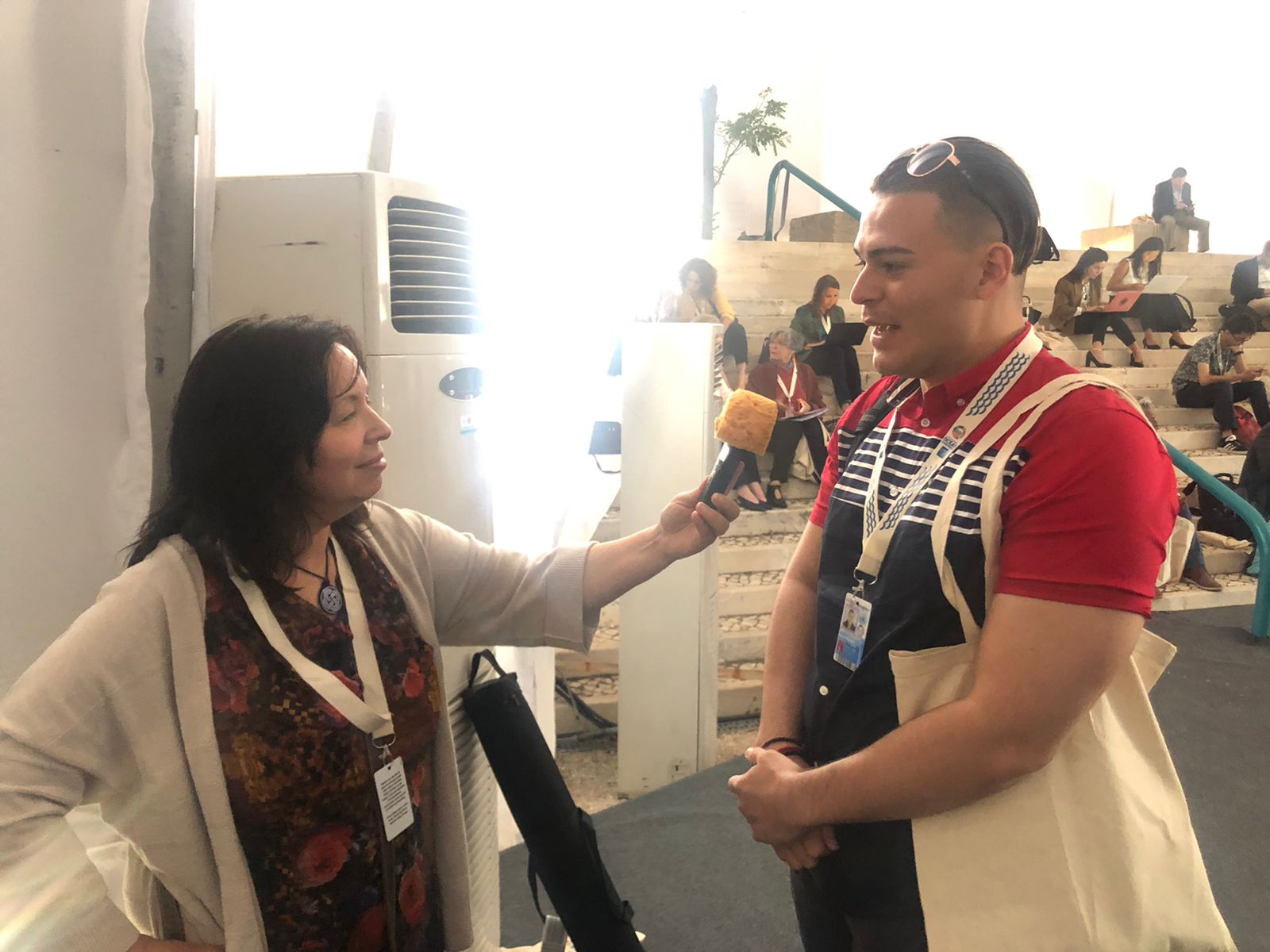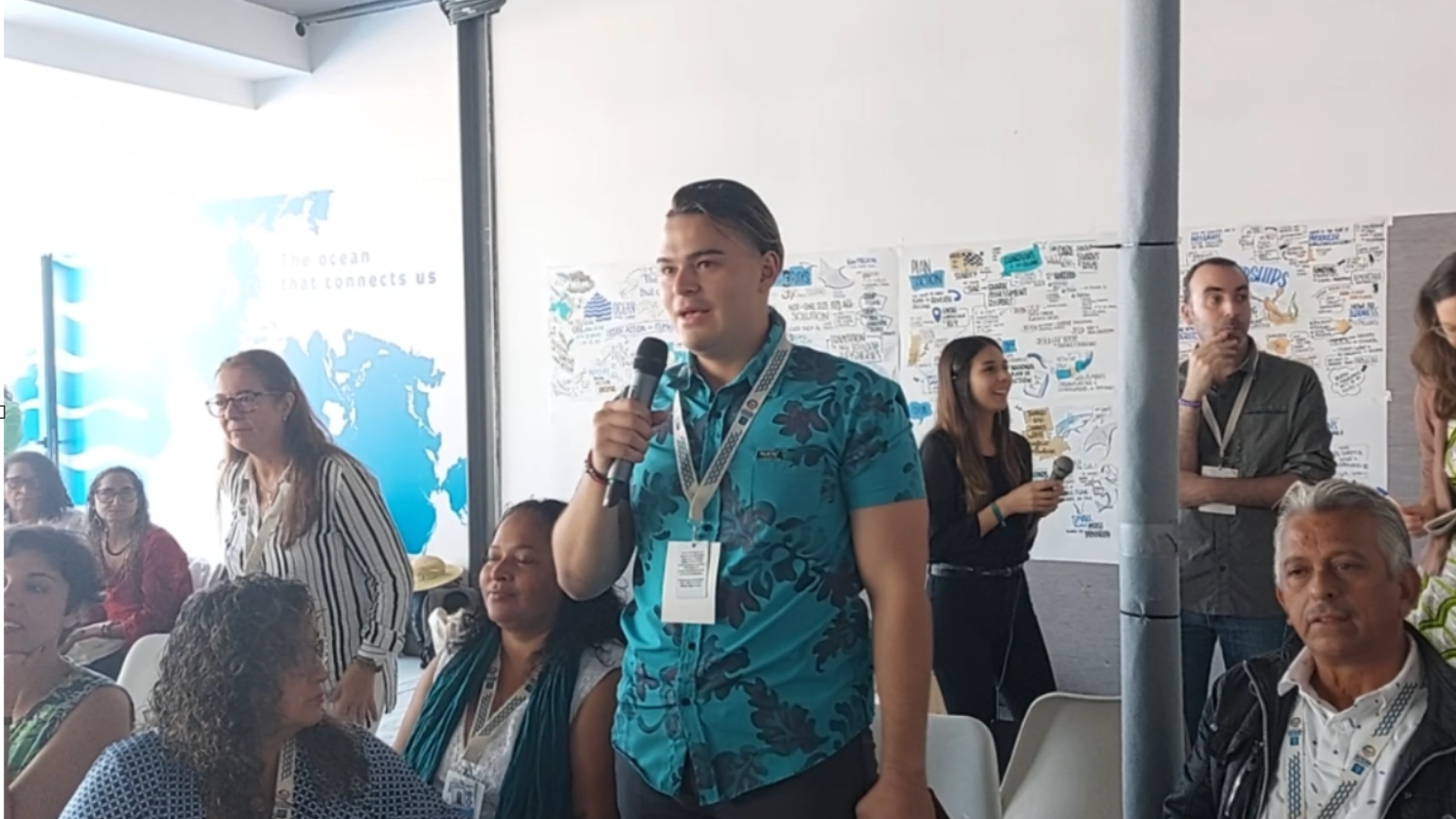This article was written by CoopeSoliDar RL.
The Ocean Congress organized by the United Nations (UNOC), was held in Lisbon - Portugal from June 26 to July 1, 2022, and was attended by a delegation of small-scale fisher leaders representing Mesoamerica, who joined others from Asia, Africa and Latin America to position the needs and ideas of the small-scale artisanal fishing sector around the world.
In this group of fishermen, fisherwomen and mollusk gatherers, the voice of the young fisherfolks was strong and clear.
Aarón Chacón from Costa Rica participated, a young 24-year-old fisherman leader who belongs to the community of Tárcoles, a responsible fishing marine area that is part of the Responsible Fishing Marine Areas and Marine Territories of life Network, which for 22 years has generated political influence in the recognition of the rights of people who are part of all the value chains of small-scale artisanal fisheries in Costa Rica. CoopeTárcoles RL was the generator, together with INCOPESCA, of the Executive Decree that defines the shared governance of the marine territories under this institution.

It is important to contextualize that youth in coastal communities, and those who are directly part of small-scale artisanal fisheries, have particular and changing life stages. According to the Young Person Policy in Costa Rica, young people reach adulthood at 35 years of age, however, this data varies considerably, when due to socioeconomic and sociocultural factors, young people stop being young to assume responsibilities ranging from being the main source of sustenance for their households until assuming the role of fatherhood or motherhood.
The foregoing makes it a real challenge to count with young people like Aarón to be part of this type of advocacy space, both at the international and national levels, since sometimes their responsibilities at a certain point in their lives do not allow them to participate as they may wish.
This Oceans Conference was a clear example of what was evidenced previously. Being the International Year of Artisanal Fisheries and Aquaculture, we would have expected to have a greater participation of this sector among the more than 6,000 attendees at the Congress. That was not the case. The presence of small-scale fisherfolks was scarce and very few young fisherfolks attended the event. This made Aaron's participation invaluable in every space where he had a chance to speak up.
Prior to Lisbon, small-scale artisanal fisher organizations from Africa, Asia, the Pacific and Mesoamerica held a series of virtual meetings to discuss the Call to Action for Artisanal Fisheries, a document that outlines the roadmap to follow that the states must take into account to support and preserve the small-scale artisanal fishing activity as the livelihood and food security that it means for hundreds of communities around the world. In these previous meetings, Aaron’s participation was fundamental, since the document today contemplates the vision of young people in this sector thanks to Aarón's contributions as a representative of a Network of Young Fisherfolk that is being organized in the country.

The call of action states that we need to :
“Build resilient communities to face climate change and offer perspectives to young people. Develop, with fishing communities, specific policies and plans for climate change adaptation and mitigation, including restoration measures to guarantee the health of marine ecosystems, and measures for disaster risk reduction and emergency response; Support initiatives that improve the resilience of communities, particularly in the face of resource scarcity, by helping them reduce post-harvest losses or developing supply alternatives, with the aim of offering prospects for long-term decent livelihoods for young people; and guarantee the social rights of artisanal fishing, such as access to social security, health and education."
With this clear message, on the day of the launch of the Call to Action in Lisbon, Aaron's voice was heard by more than 100 people who attended the launch, thus paving the way for the coming days of the Conference, where despite the language barrier and the lack of importance to resolve this issue in the parallel events, did not miss the opportunity to convey the message that he wanted to convey, "We youth want our rights to be recognized."
There is still a lot to do and advance in this process that integrates the young fisherfolks in the debates and discussions where decisions are made about the sea and the marine territories of life where these young people carry out their activities. It is for this reason that CoopeSoliDar RL, with the support of the SSF Hub, a series of activities will continue to promote, strengthen, and accompany the participation of small-scale artisanal fishing youth in the next debates and discussions at the national, regional and international levels.
Contact Griselda Alvarado Picado (galvarado@coopesolidar.org) and Marvin Fonseca (mfonseca@coopesolidar.org) for more information and view some videos of young people in the National Network of Marine Areas of Responsible Fishing and Marine Territories of Life below:
Abraham Alvarez: https://www.youtube.com/watch?v=M9tqPPaFovg
Lady Diaz: https://www.youtube.com/watch?v=IS6Fkx6aRY4
Brian Fernandez: https://www.youtube.com/watch?v=fxQ5ohJj9Pw
This article is part of the SSF Highlights series of articles published regularly to the SSF Hub. To read previous SSF Highlights, follow this link.
